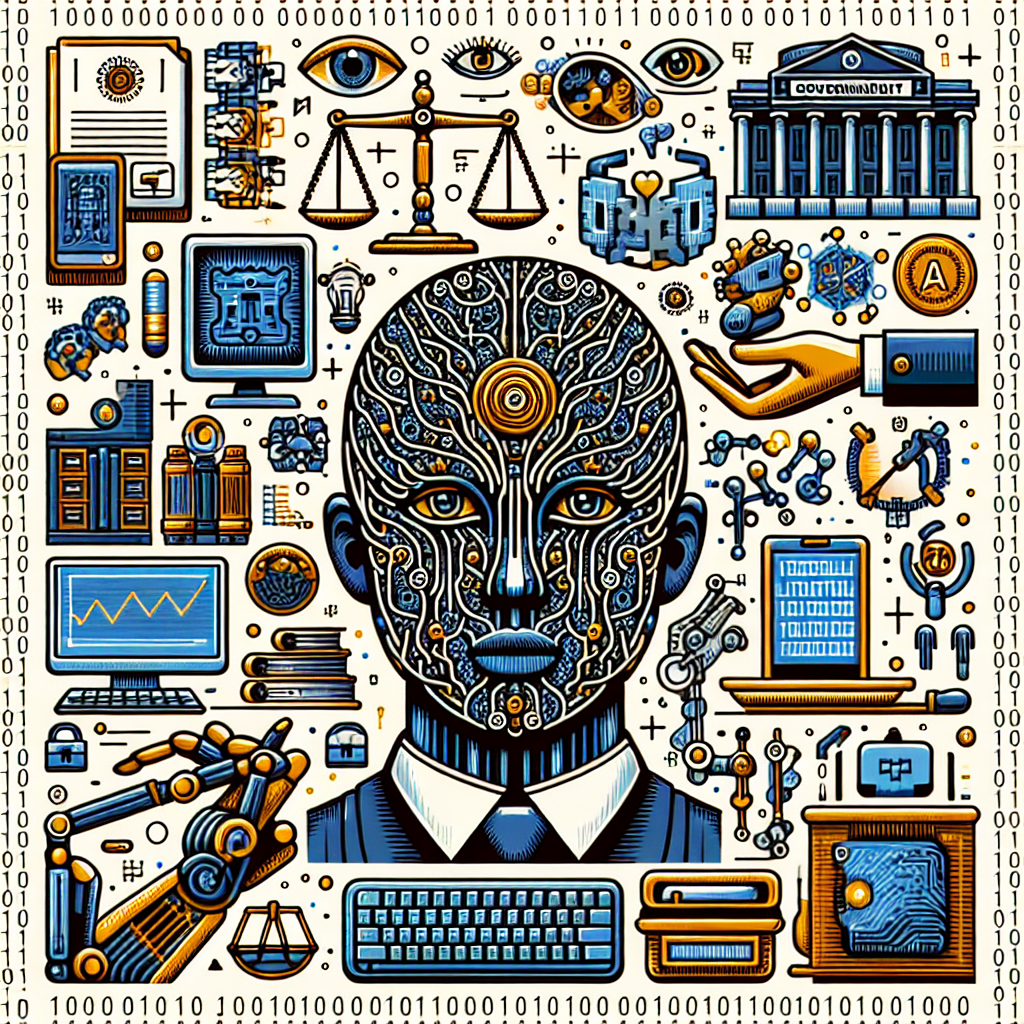Artificial intelligence (AI) has become a transformative force in various industries, including government services and operations. The integration of AI technologies in the public sector has the potential to streamline processes, enhance efficiency, and improve service delivery to citizens. By leveraging AI, governments can automate repetitive tasks, analyze vast amounts of data, and make data-driven decisions to optimize operations and provide better services to the public.
One of the key areas where AI is making a significant impact is in citizen services. AI-powered chatbots and virtual assistants are being used by government agencies to provide instant and personalized assistance to citizens. These chatbots can answer common queries, provide information about services, and even help citizens complete online transactions. By automating these routine tasks, government agencies can free up human resources to focus on more complex and strategic initiatives.
AI is also being used to improve the efficiency of government operations. For example, AI algorithms can analyze large datasets to identify patterns, trends, and anomalies that humans may not be able to detect. This can help government agencies to better understand citizen needs, predict future demand for services, and optimize resource allocation. Additionally, AI can help to streamline processes such as procurement, budgeting, and project management, leading to cost savings and improved operational efficiency.
Another area where AI is making a significant impact is in public safety and security. AI-powered surveillance systems can analyze video footage in real-time to detect suspicious activities and alert law enforcement agencies. AI algorithms can also be used to analyze social media posts and other online data to identify potential threats and prevent crime. By leveraging AI technologies, governments can enhance public safety and security, and respond more effectively to emergencies and disasters.
Furthermore, AI can help governments to improve decision-making processes by providing data-driven insights and recommendations. By analyzing vast amounts of data from various sources, AI algorithms can identify trends, predict outcomes, and suggest strategies for addressing complex challenges. This can help government leaders to make more informed decisions, allocate resources more effectively, and achieve better outcomes for citizens.
Despite the numerous benefits of AI in government services and operations, there are also challenges and concerns that need to be addressed. One of the main challenges is the ethical and legal implications of using AI in decision-making processes. There are concerns about bias in AI algorithms, data privacy issues, and the potential for AI systems to make decisions that may have negative consequences for certain groups of people. Governments need to ensure that AI technologies are developed and deployed in a responsible and ethical manner, with appropriate safeguards in place to protect citizens’ rights and interests.
Another challenge is the need to build the capacity and expertise within government agencies to effectively implement and manage AI technologies. Governments need to invest in training and upskilling their workforce to ensure that they have the knowledge and skills to leverage AI effectively. Additionally, governments need to collaborate with industry partners, academic institutions, and other stakeholders to develop AI solutions that meet their specific needs and priorities.
Despite these challenges, the potential benefits of AI in improving government services and operations are substantial. By harnessing the power of AI, governments can enhance service delivery, optimize operations, and make data-driven decisions to improve outcomes for citizens. As AI technologies continue to evolve and mature, governments have the opportunity to leverage these technologies to transform the way they deliver services and serve the public.
FAQs:
1. What are some examples of AI technologies being used in government services?
– AI-powered chatbots and virtual assistants for citizen services
– AI algorithms for data analysis and decision-making
– AI-powered surveillance systems for public safety and security
2. How can AI help governments to improve efficiency in operations?
– By automating routine tasks
– By analyzing large datasets to identify patterns and trends
– By streamlining processes such as procurement and project management
3. What are some of the challenges of using AI in government services?
– Ethical and legal implications
– Bias in AI algorithms
– Data privacy concerns
4. How can governments address the challenges of using AI in government services?
– By developing and implementing ethical guidelines for AI use
– By investing in training and upskilling their workforce
– By collaborating with industry partners and other stakeholders
5. What are some of the potential benefits of using AI in government services?
– Enhanced service delivery
– Improved operational efficiency
– Data-driven decision-making
In conclusion, AI has the potential to revolutionize government services and operations by automating tasks, analyzing data, and providing insights that can help governments to better serve their citizens. By leveraging AI technologies responsibly and ethically, governments can enhance service delivery, improve efficiency, and make data-driven decisions to achieve better outcomes for the public. As AI technologies continue to evolve, governments have the opportunity to harness the power of AI to transform the way they deliver services and serve the needs of the public.

